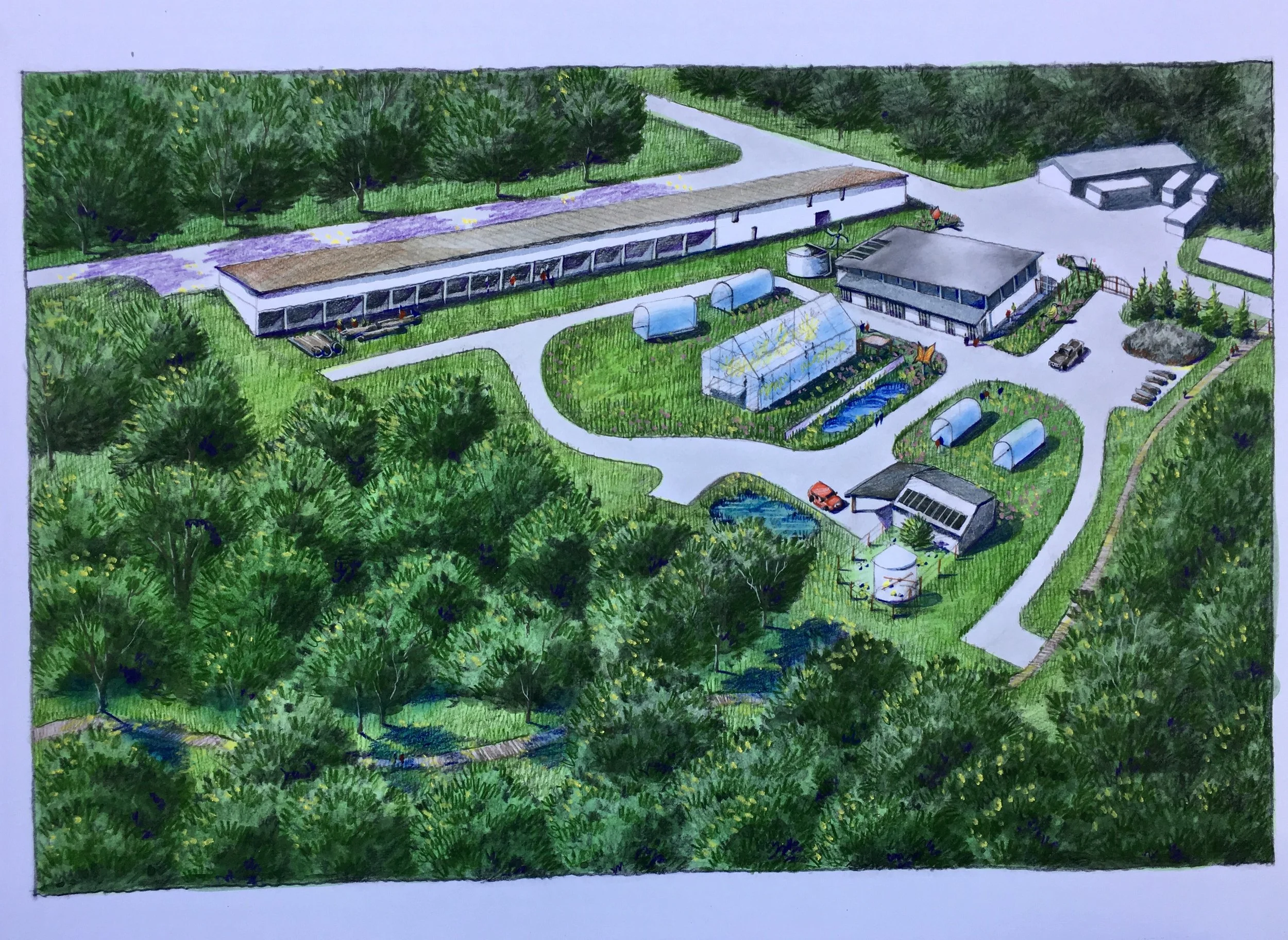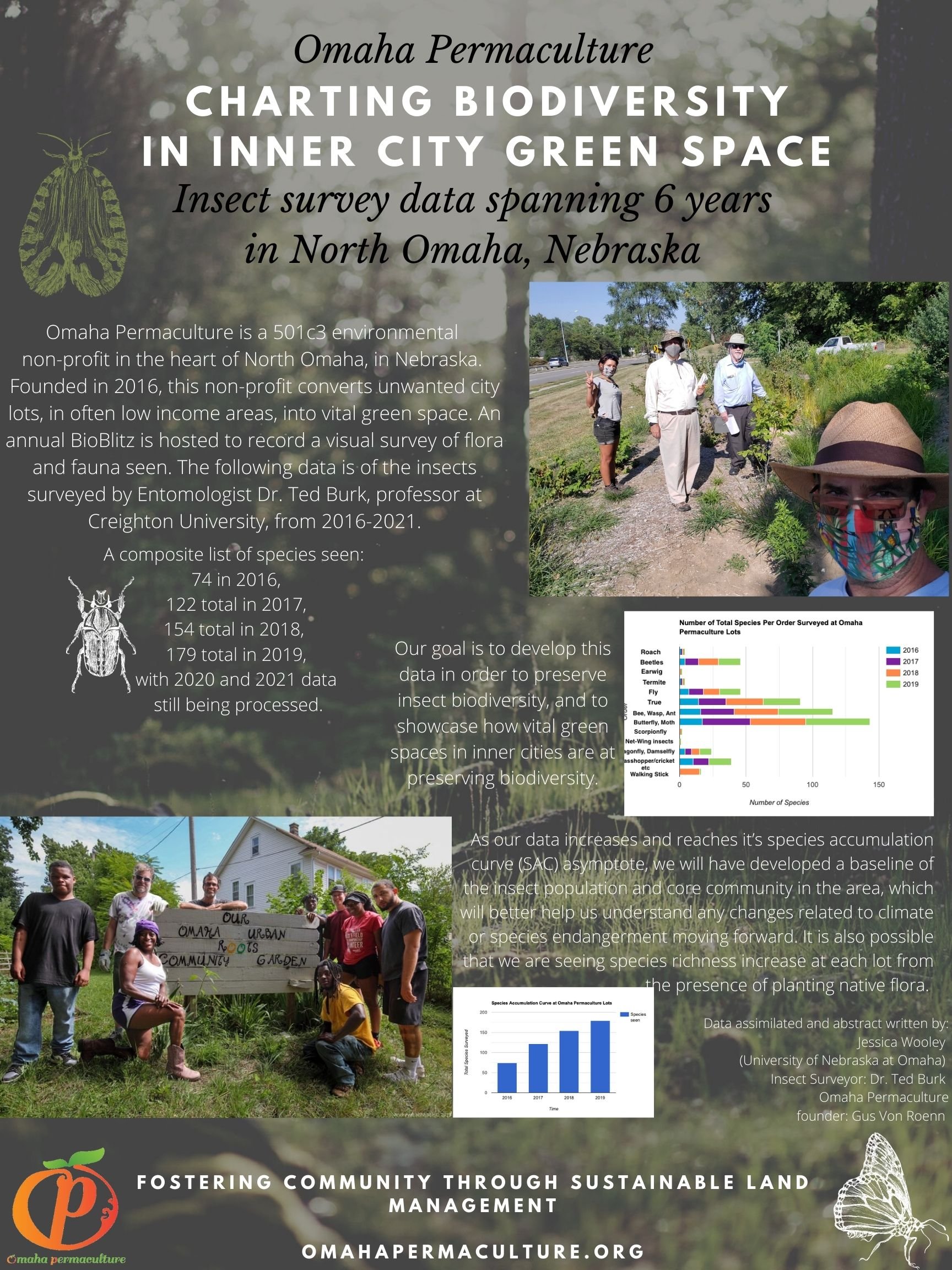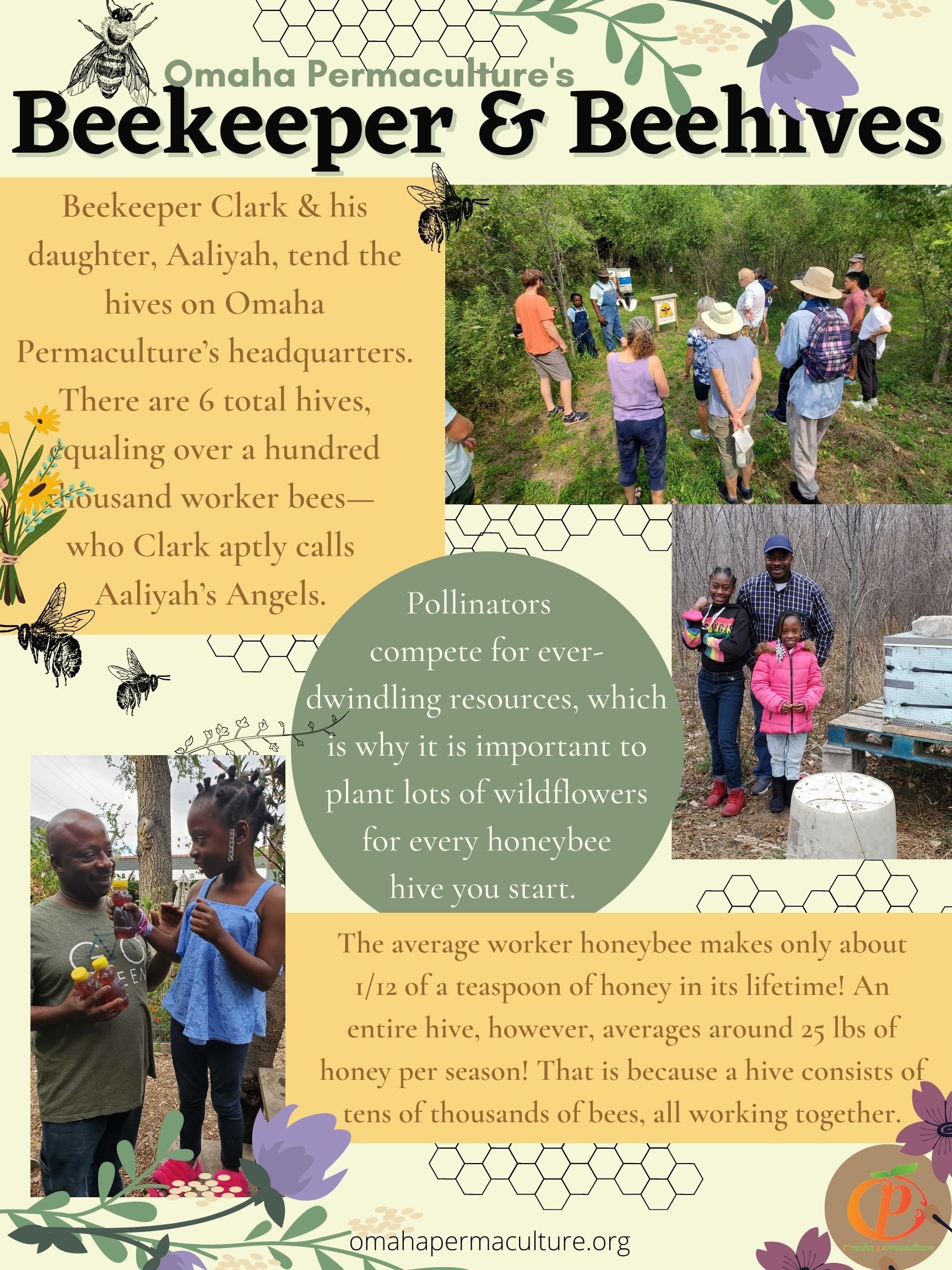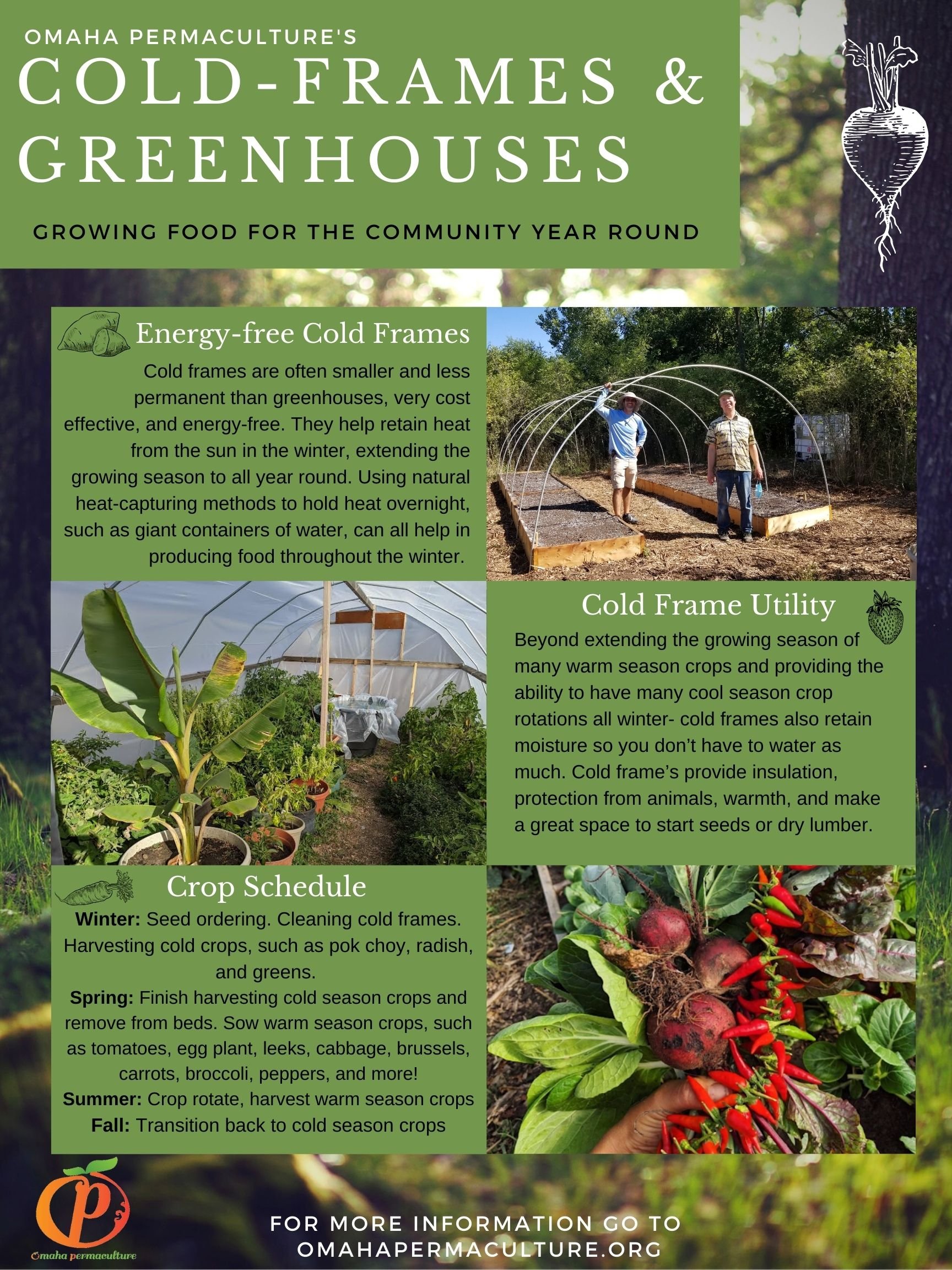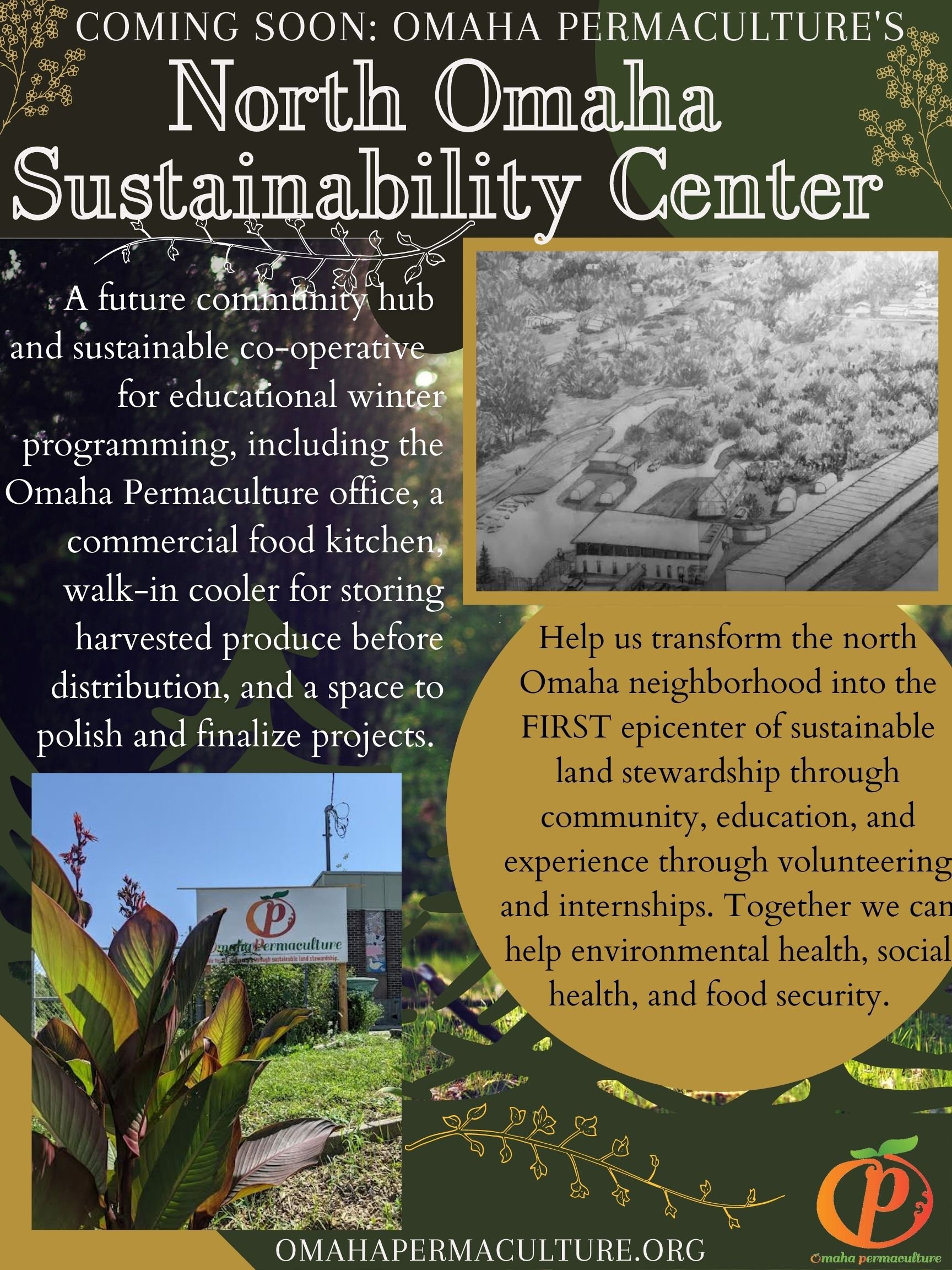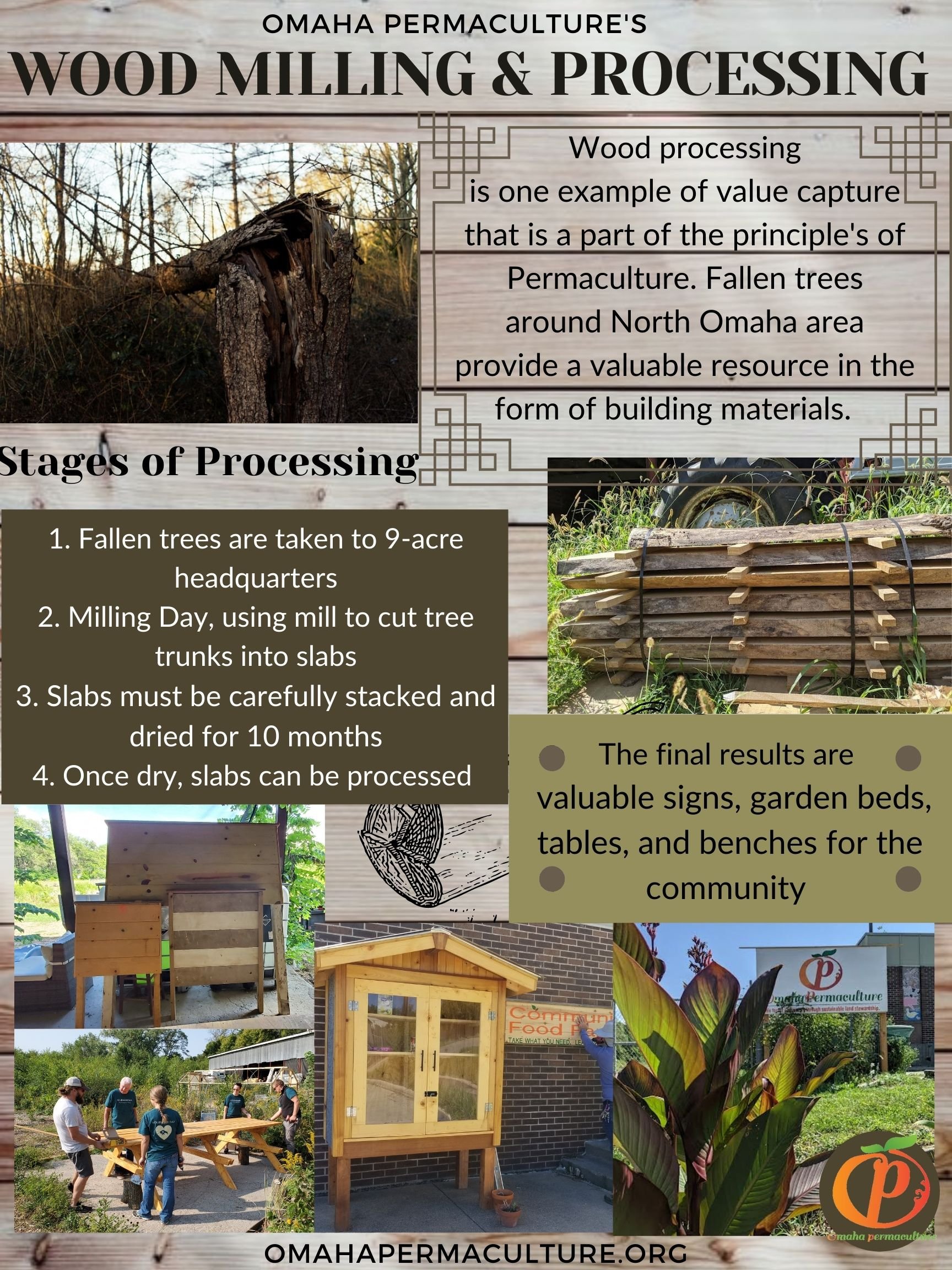Omaha Permaculture: A North Omaha Oasis in a Food Desert
Image credit: Amy Pedersen
By Kietryn Zychal
Tucked away in a zone of light industrial businesses in North Omaha is an oasis of sustainable living. Surrounded by auto repair shops, a high-decibel sandblasting operation and blocks of junk car lots, Omaha Permaculture (OP) sits on eight and a half acres of emerging green space at 41st and Grant St. Its mission: to turn a food desert into a food paradise for North Omaha residents through permaculture and to foster community in the process.
What is permaculture? It is sustainable land stewardship guided by ethics of earth care, people care and community care, performed by energy and water-saving design. In a word, permaculture is sustainable, not exploitative or damaging to the environment.
Outside the front door of OP’s main building on Grant Street, there is an outdoor pantry accessible 24-hours a day that offers a rotating stock of free canned goods and other non-perishable food items. Organic produce grown by OP — and eggs laid by their chickens — are shared with food pantries and distributed to the community.
Omaha Permaculture was founded as a nonprofit by Gus von Roenn in 2015, but his work in urban farming began even earlier. Von Roenn transformed vacant lots into community gardens with a lean budget in partnership with the city. Von Roenn had visions of a more ambitious operation: a permaculture headquarters, located in North Omaha, where residents could learn new skills and practice sustainable living.
To that end, three years ago OP began transforming a brownfield site that was once a railroad depot. Since at least the 1920s, lumber was offloaded at the depot to be dried and stored. The railroad tracks are long gone, but the big depot building remains, and it is still used for drying lumber, but now, the lumber comes from the neighborhood. Trees that have been felled by storms-- or unhappy homeowners-- are welcome at OP where they will be milled and dried. Ash, walnut, and maple tree trunks are waiting on the site for their next incarnation as building products.
Most of the acreage is covered with saplings. Grassy paths lead through the budding forest, passing by a dozen “cold frames” — handmade greenhouses covered with plastic where herbs and vegetables can be grown year round. The acreage supports chickens, geese, quail, beekeeping hives with 200,000 bees, untold wild birds and rabbits and unfortunately, the occasional raccoon or fox in the henhouse. There is also a large mulch pile. OP accepts wood chips from various tree companies that are disbursed to community gardens throughout Omaha for free.
OP keeps its hand in urban farming with more than a dozen community gardens off-site.
An interactive map of their gardens can be found on their website. “A two-acre garden by the Ernie Chambers apartments on 18th and Burdette feeds over a hundred individuals,” von Roenn said.
OP also partners with local nonprofits to offer summer employment to neighborhood youth who work in the gardens. Native Omaha resident Clark Williams keeps the neighborhood gardens looking trim and runs the beekeeping operation, along with his 9-year old daughter Aaliyah Porter. The father daughter team are featured in a NOISE podcast about lessons learned metaphors gleaned from their beekeeping.
Clark Williams and his daughter Aaliyah Porter have started selling honey from the bees they raise together under the name “Aaliyah’s Angels Honey.” They were both happy to show off their new T-shirt the day NOISE visited Omaha Permaculture.
At the southern end of the property, beyond the cold frames and the beehives, near the sandblasting business on Parker Street, an immigrant from Burundi and his 11 relatives have transformed a large weed-filled lot into a garden that feeds their family. (He did so much work, von Roenn applied for a grant to cover his expenses and provide income for him.) African eggplant that looks like tomatoes from a distance was still in abundance in October.
Emanuel does not know how to spell his last name in English. He communicates through gestures and a wide smile. On a recent visit, von Roenn was particularly eager to show off Emanuel’s “bio-char,” small pieces of burned wood that nourish the soil. In a corner of the garden, a large mound of dirt hides a suffocated fire. Two air holes allow smoke to escape while the fire is burning underneath, deprived of oxygen. When the process is complete, the char is ready to be tilled into the soil in lieu of chemical fertilizers.
Oh, and there’s no water supply on the property so they have to collect rainwater off roofs or fill tanks for irrigation from water trucks.
The walls inside Omaha Permaculture’s main building are covered with posters, each explaining one of the benefits that OP offers:
Von Roenn's next vision for OP is to purchase a property to become a permanent amenity in North Omaha. The brownfield site they have been cultivating for three years would be just fine for their purposes. It already feels like home to them.
The public is welcome to visit Omaha Permaculture at 4101 Grant Street, call at 402-689-5509, take a workshop, volunteer in the gardens or just drop by the pantry to pick up some canned pears or dried beans or take some wood chips from the pile.

